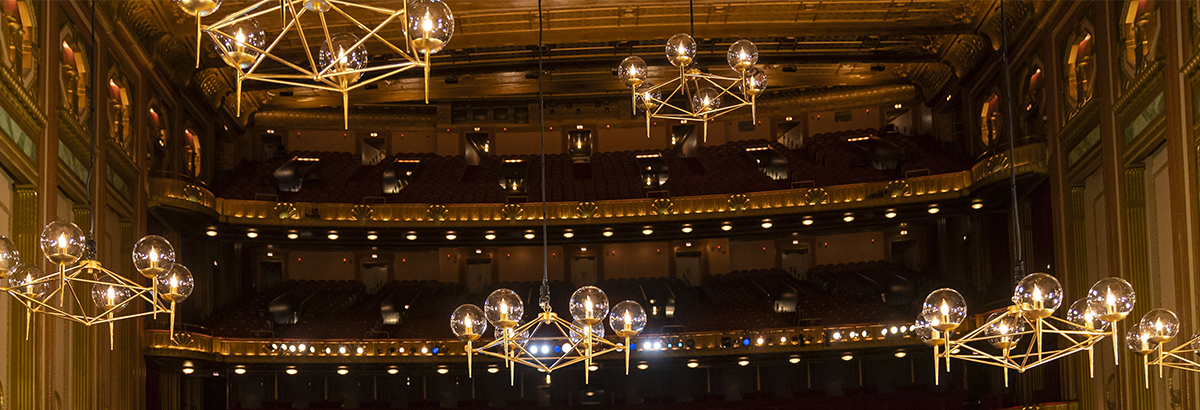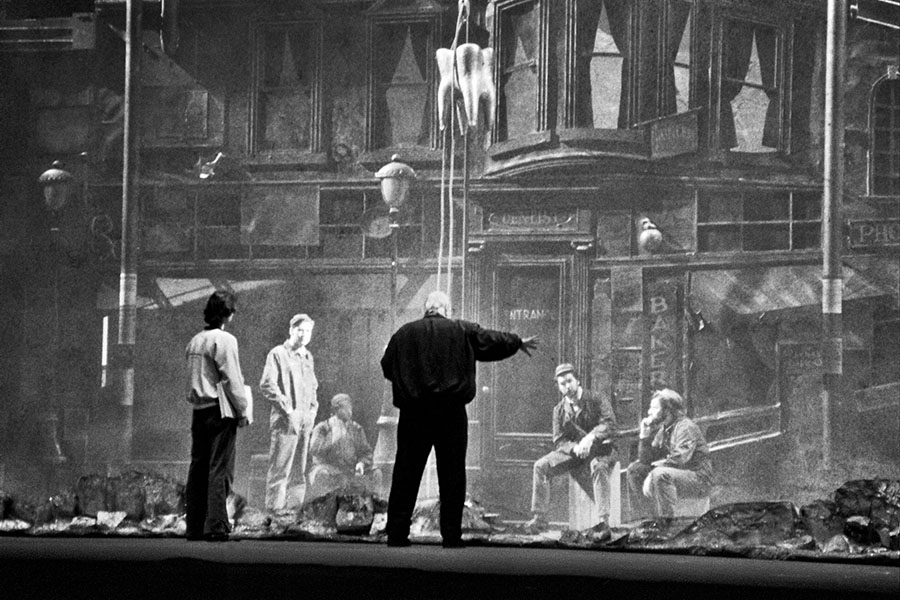
The Komische Oper Berlin design team has cloaked the production in a subdued, limited palette of blacks, grays, browns and some whites in the scenery (Rufus Didwiszuz), costumes (Klaus Bruns) and lighting (Diego Leetz original, recreated by Marco Philipp). The tale's dark side dominates almost all physical aspects of the production, except choreography (Silvano Marraffa). The dichotomy of Fiddler, of course, is joy, love and community in the face of impossible circumstances. Kosky has fused them into a palpable community.

They bring joy to their characters in a frequently-somber story, and their fullness of feeling washes across the proverbial footlights, even in the enormous Civic Opera House. There's no fault to find with any of them, musically or dramatically. The supporting principals chiefly are New York-based musical-theater veterans, among them Tony winner Debbie Gravitte (as Golde), Lauren Marcus (Tzeitel), Drew Redington (Motel), Austen Danielle Bohmer (Hodel), Adam Kaplan (Perchik), David Benoit (Lazar Wolf), and Joy Hermalyn (Yente). Acclaimed for his portrayal of Tevye in the 2018-2020 off-Broadway Yiddish production (which he returns to in New York City in November), Skybell can daven like a cantor at one moment and pull off the show's humor the next, whether sly or broad. It's wondrous, therefore, to enjoy the smooth, warm (even velvety) and expressive baritone of Steven Skybell in the role. There's not a weak link among the singing principals, which is quite refreshing since Fiddler has a history of using vibrant performers of limited singing ability for some roles, most notably in the star turn of Tevye. Jerry Bock's familiar, redolent melodies never have sounded better from pit or stage.

The musical values are superb and rich, with a vast orchestra (60-plus pieces, real strings, no keyboards) and opera-sized cast under conductor Kimberly Grigsby.

That production is having its American premiere at Lyric Opera of Chicago, and the show's enduring values are intact-music, emotion, comedy, family, community, faith-as long as you forget the designs and physical realizations of all other Fiddler productions you've ever seen, including the film.

In reunified Germany 30 years later, Komische Oper Berlin scored again with Fiddler on the Roof (presented as Anatevka), staged by artistic director Barrie Kosky. The biggest hit of all, Fiedler auf dem Dach, had been in the repertory for 16 years by 1987. With no apparent sense of irony, the company achieved considerable success staging commercial Broadway musicals. The Wall still divided Berlin when I visited in 1987, and its famous Komische Oper was in the Communist East.


 0 kommentar(er)
0 kommentar(er)
